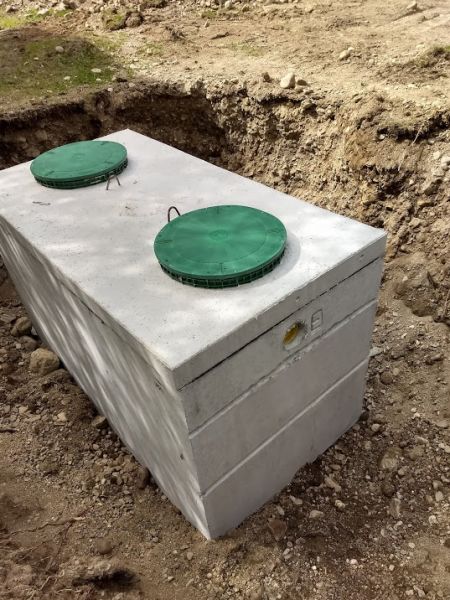How Does a Septic System Work?

Septic systems consist of a septic tank and a drainfield, or soil absorption field. A septic tank is a watertight container typically made of concrete, fiberglass, or polyethylene that is found underground. These tanks hold wastewater produced by your home.
The Role of the Septic Tank
When your wastewater reaches the septic tank, it remains inside long enough to allow any solids to sink to the bottom, forming a sludge, while any scum (oil and grease) floats above, forming multiple layers depending on consistency.
Part of the design of a septic tank includes compartments and a T-shaped outlet that prevents any sludge and scum from exiting the septic tank, which then leads to a drainfield.
How Wastewater is Treated
Once the sludge and scum separate themselves from the wastewater, effluent (liquid wastewater) then exits the septic tank and travels to a drainfield.
Importance of the Drainfield
A drainfield is a covered, shallow excavation made in unsaturated soil. Pretreated wastewater is discharged through piping onto porous surfaces that allow wastewater to filter through the soil. Once accepted, the wastewater is treated and dispersed as it percolates through the soil, discharging to groundwater.
Natural Filtration and Groundwater Protection
The wastewater percolates into the soil, naturally removing any harmful coliform bacteria, viruses, and nutrients.
Why Regular Septic Tank Inspections are Essential
Guardian Well and Septic is your local well and septic tank inspector with services helping to encourage the use of safe, clean, healthy water. With an unmaintained septic tank, you face the risk of using contaminated water. The entire septic system begins with the septic tank. Without a properly functioning septic tank, wastewater will not be separated and treated properly at the drainfield.
Guardian Well and Septic: Your Local Experts
Contact Guardian Well and Septic for a professional septic inspection. It all starts here, with a professional inspection to gain the exact information on what repairs or upgrades may be needed. Use this information to then hire a technician who can make the repairs required to help save you thousands and give your home safe, clean, and healthy running water.
